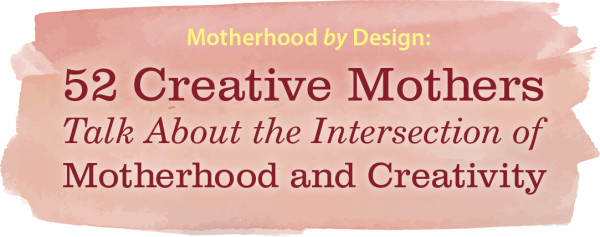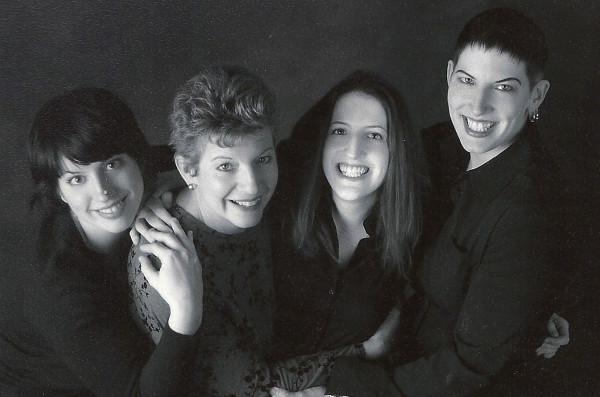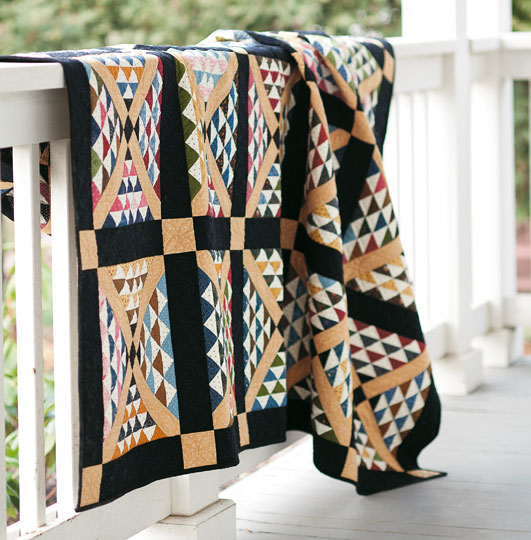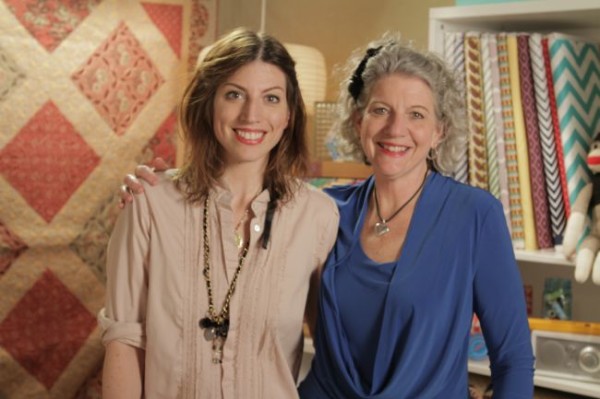
Welcome to Week 37 of Motherhood by Design – the series where mothers who also run creative businesses share their inspirations and their experiences juggling the demands of raising children while growing a creative career.
"I loved patchwork because I could pick it up and put it down while I was caring for my family. Also, it “stayed done,” unlike everything else."

Marianne Fons is a quilting legend. Her influence in the field is wide-reaching, most notably through her public television series called "Love of Quilting," which she began hosting with Liz Porter in 2003. The show is still on TV today but is now co-hosted with her daughter, Mary Fons. Over the years the Fons & Porter brand has grown far and wide to include patterns, books, magazines, classes, an online community, as well as a large range of notions available in sewing and craft stores across the country. I'm honored to include Marianne Fons as part of this series, not only because of her achievements in the industry, but also because of how she established and grew her business not only out of passion, but out of necessity to support herself and her three daughters.


Welcome to Motherhood by Design, Marianne – can you please describe your family?
Myself, my husband, and my three adult daughters. My husband is my second husband, so is a stepfather to my daughters. My daughters are Hannah, 39, who lives in New York City; Mary, 36, who lives in Washington, DC, and Rebecca, 33, who lives in Chicago. All three of them were born and raised in a town of 5000 in Iowa, but have chosen to live in big cities.
What is your business?
I am a retired business owner, co-founder of Fons & Porter’s Love of Quilting magazine.
When you were a child yourself, how did you spend your free time?
I grew up in a creative household and was a lover of “projects” myself as a kid. I was always painting, sewing, reading, writing.
Did crafting or handwork play a significant role in your childhood? If yes, in what way?
My mother sort of taught me to sew, but she was a career woman, a schoolteacher with papers to grade, so I taught myself as well. I made Barbie clothes on her Singer Featherweight. My parents did not restrict me in my creativity. My mother never hovered worrying I would break her machine.
When you were a child, did you have ideas about your own future as a mother? Was motherhood something you’d always imagined for yourself, or is it an idea you grew into later in life?
I don’t remember thinking much about being a mother when I grew up. I wanted to be a famous fashion designer and live in New York City. When I married the first time, I was very much in love and wanted children. I had three in seven years, and I was the first person to deliver at the local hospital using Lamaze childbirth methods.
In your early years of motherhood, did you have/make time for your creative pursuits, or was your creative work put aside for a while? If the latter, when did you pick it back up?
After doing free form embroidery and cross stitch, I got interested in making quilts around the time of the American Bicentennial, when crafting and quilting was everywhere in the media. I had one toddler daughter at the time and soon had my second child. I loved patchwork because I could pick it up and put it down while I was caring for my family. Also, it “stayed done,” unlike everything else.
Did you start your creative business prior to becoming a mother, or after?
As soon as I became proficient in patchwork and quilting, I found myself teaching others. The first money I made in crafting was from teaching locally. I went on to write books with co-author Liz Porter as well as on my own. I divorced my first husband when my daughters were 13, 9, and 6. My work in the quilting world at the national level raised my daughters and put them all through the University of Iowa with no college debt.
What prompted you to start your creative business? Is it something you saw yourself doing when you were a child?
When I became a “professional quilter,” I was a twenty-something woman with a college degree (in English) living in a town of 5000. There were no jobs for a person like myself in my town. Earning money locally by teaching, rather than pursuing a commute-job in Des Moines appealed to me. One thing led to another, and Liz Porter and I eventually wrote the Quilter’s Complete Guide, which over the years sold over half a million copies. We decided we could teach quilting on TV and so pursued and made that happen as well. Our publisher started Love of Quilting magazine and we eventually had the opportunity to purchase it and grow it as a business ourselves.
How do you balance your creative work with your role as a mother and how has that changed over time?
I was not the kind of mother who played with my children. My ideal situation was to be in the same room with them while I pursued my current project and they pursued theirs. I was willing to talk and interact with them, sort of like parallel play. I was always willing to fund art and craft supplies. My daughters all turned out quite creative as well.
In what ways does motherhood affect your work processes?
Because I became the sole financial support of my family, I was quite driven to make an adequate living. Because part of my work involved teaching and lecturing to quilt guilds all around the country, I missed a lot of important moments—plays, Halloween, etc., but I think my children understood it was for the good of the family as a whole, I had to do it. When I wasn’t out of town, I was usually working at home. In middle and high school, our home was open house for their closest friends. Kids studied after school at our dining room table and often stayed for dinner if there was plenty of spaghetti. They may remember me as often preoccupied with work and working into the night, but they knew my work was our livelihood. I don’t know if I would have been as ambitious without the breadwinner role I found myself in.
What is the biggest impact that your children have had on your business?
They have motivated me to be someone they can be proud of as a professional person.
How do you think your creative pursuits, including your business, affect your children? Is there something you hope your children learn from you by having a creative business?
They have seen hard work pay off for a person in a creative field. They understand what it is to be an entrepreneur in America.
Is there something you hope your children learn from you by having a creative business?
Since they are adults, and creatives themselves, I know my having a creative business had a big impact on them. My father was a commercial artist (exhibit design) and painter, my mother an English teacher and hobby sculptor who loved literature. In my family, a creative business is considered normal.
What advice would you offer the mom who feels drained by the demands of motherhood and wants more hands-on creativity in her life?
I don’t know. I don’t remember feeling drained when my children were young. I must have been, but I remember feeling energized by my creative work. One of my fondest memories is when they were young and I was hand quilting. I would sit in my rocker and stitch, and my daughters would take turns reading to all of us. Hannah went through the entire Chronicles of Narnia one year when she was about ten.
Thank you so much, Marianne, for sharing your thoughts with us today! You can find Marianne in the following places:
Website: Fons and Porter's Love of Quilting Facebook: Marianne Fons Pinterest: Fons and Porter's Love of Quilting

